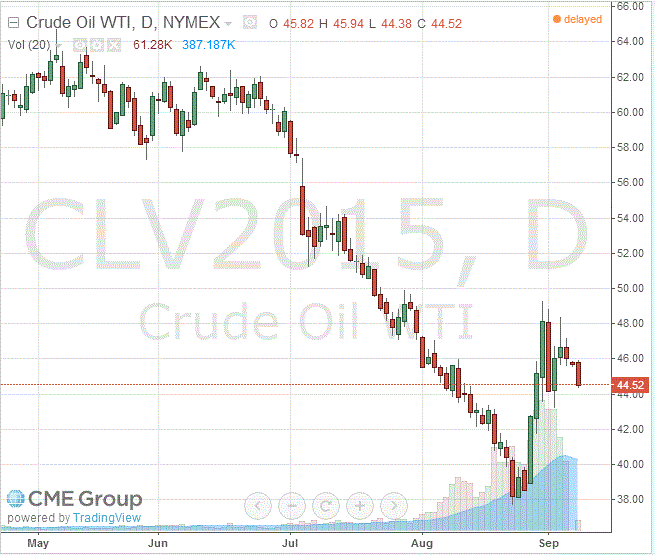- Oil prices decrease more than 2.5%
Noticias del mercado
Oil prices decrease more than 2.5%
Oil prices fell on concerns over a slowdown in the Chinese economy. China's National Bureau of Statistics (NBS) revised its gross domestic product (GDP) on Monday. The Chinese economy expanded 7.3% in 2014, down from a 7.4% growth reported earlier. It was the lowest growth since 1990.
The downward revision was driven by a weaker rise in the services sector than previously reported.
According to data released by the People's Bank of China PBoC), China's foreign-exchange reserves declined by $93.9 billion to $3.56 trillion at the end of August, compared with $3.65 trillion in July. Currency reserves have been falling from $3.99 trillion in June 2014.
The recent decline is the result of the central bank's intervention to stop to stop the yuan fall and to limit capital outflows from the country.
U.S. markets are closed for the Labour Day holiday today.
Concerns over the global oil oversupply also weighed on oil prices. Oil ministers from the Gulf region will meet this week in Qatar. The Gulf Cooperation Council (GCC) includes Saudi Arabia, United Arab Emirates, Kuwait, Qatar, Bahrain and Oman. The recent oil price decline is not on the agenda.
The oil driller Baker Hughes reported that the number of active U.S. rigs declined by 13 rigs to 662 last week. It was the first fall in seven weeks.
WTI crude oil for October delivery declined to $44.52 a barrel on the New York Mercantile Exchange.
Brent crude oil for October fell to $47.86 a barrel on ICE Futures Europe.
